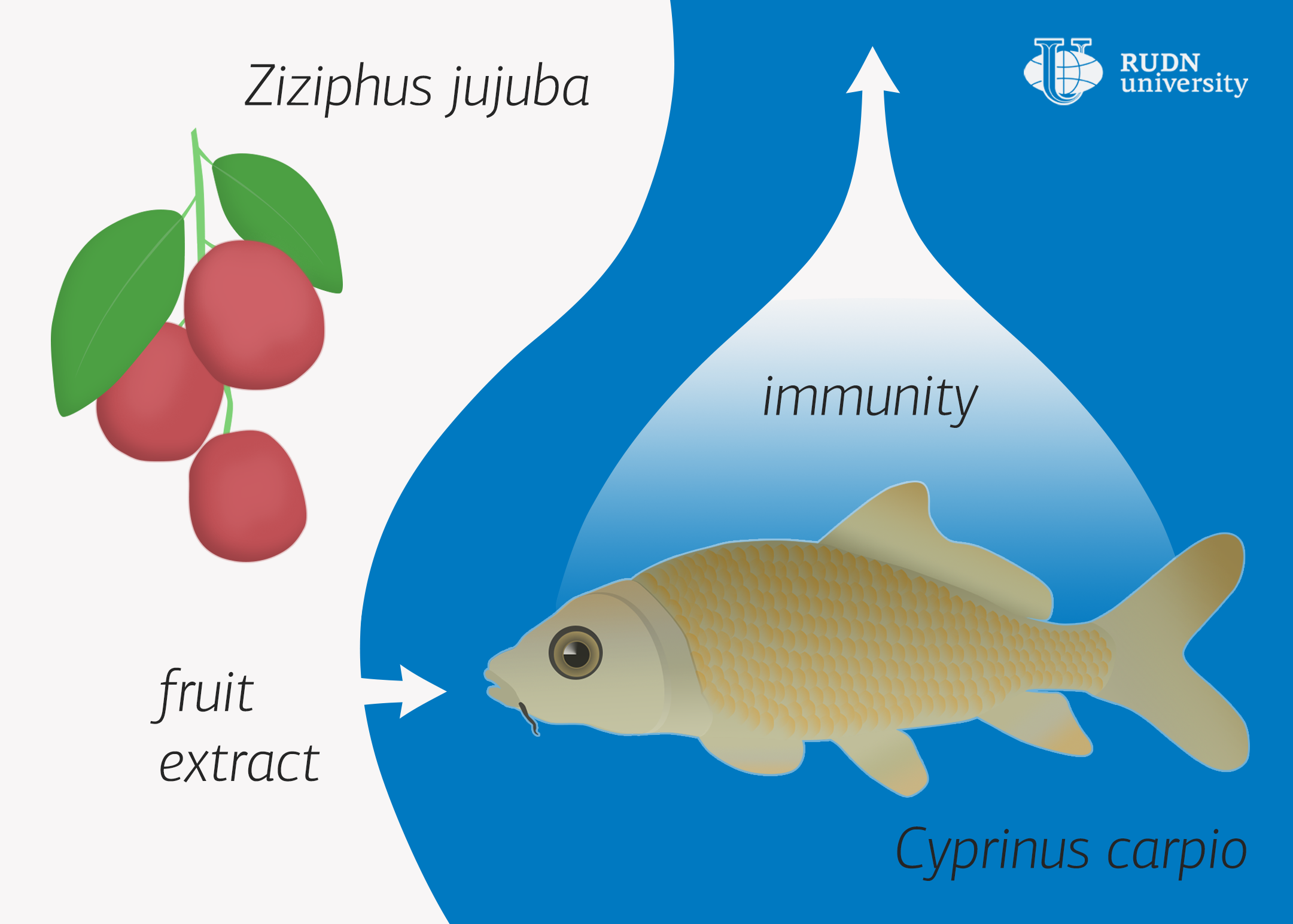RUDN University biologist found that Chinese date improves the immune system of fish

In fisheries, antibiotics are usually used to prevent infections. However, their use leads to the emergence of strains of bacteria resistant to them. This is a potential threat not only to fish but also to humans — in case that antibiotic-resistant bacteria begin to be transmitted from person to person. Researchers are looking for alternative drugs suitable for use in ichthyology.
Morteza Yousefi, a biologist from the RUDN University, and his colleagues investigated the properties of Zizyphus (Zizyphus jujube), known as “Chinese date” and found that it can be used as an antimicrobial agent for fish.
Morteza Yousefi tested the immunostimulatory properties of this plant on carp (Cyprinus carpio). The biologists gave the fish a solution of ethanol and distilled water with Ziziphus fruit juice with a concentration of 0.25%, 0.5%, and 1%. Then they took samples from the fish mucosa and monitored how immune parameters change: the number of antibodies, the activity of enzymes — proteases and the expression of genes of signaling molecules — cytokines, which, in particular, trigger phagocytosis, that is, the destruction of bacteria.
Analysis of the data showed that carp, which were given a solution of the fetus with a concentration of 0.5%, increased the number of antibodies. The more antibodies in the blood, the more extraneous compounds — antigens — they can “catch”.
Besides, ichthyologists have found a connection between the extract of dates in the diet of fish and the presence of cytokines. The experiment showed that the concentration of the solution is 0.25% does not change the immune reactions of carp, but 0.5% and 1% solution increases the expression of cytokine genes and the activity of protease enzymes that are involved in the “digestion” of killed pathogenic bacteria and in triggering the processes of extraneous cells death (apoptosis).
The experiment showed that the juice of the Chinese date can increase the immunity of carp, which means that it can be used as an antibacterial agent in fisheries working on the principle of “green aquaculture”. The discovery of immune stimulation of the carp juice of Ziziphus fruit in the future will allow fishermen to reduce the damage from infections, without provoking the emergence of antibiotic-resistant strains of bacteria.
The results are published in the journal Fish and Shellfish Immunology.
Matilda Pavlovna Mityaeva was born in 1925. In November 1942, she volunteered for frontline duty. She participated in the Great Patriotic War from November 1942 to June 1945 as part of the 53rd Infantry Division of the 475th Infantry Regiment. She was wounded twice.
The team led by Sergey Zyryanov, Head of the Department of General and Clinical Pharmacology, became the winner of the All-Russian competition of scientific projects "Technologies for Human Health".
RUDN University constantly adapts to the changes of the modern world and responds to challenges flexibly. This allows us to keep the standard of a world-class research university. The sphere of science is no exception. Peter Dokukin, Head of the Research Division, presented the updated R&D Programme at the meeting of the RUDN University Academic Council.
Matilda Pavlovna Mityaeva was born in 1925. In November 1942, she volunteered for frontline duty. She participated in the Great Patriotic War from November 1942 to June 1945 as part of the 53rd Infantry Division of the 475th Infantry Regiment. She was wounded twice.
The team led by Sergey Zyryanov, Head of the Department of General and Clinical Pharmacology, became the winner of the All-Russian competition of scientific projects "Technologies for Human Health".
RUDN University constantly adapts to the changes of the modern world and responds to challenges flexibly. This allows us to keep the standard of a world-class research university. The sphere of science is no exception. Peter Dokukin, Head of the Research Division, presented the updated R&D Programme at the meeting of the RUDN University Academic Council.